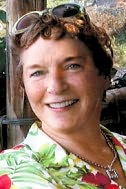- Shopping Bag ( 0 items )
-
All (768) from $1.99
-
New (23) from $1.99
-
Used (745) from $1.99





Overview
A CLASSIC FROM THE BESTSELLING AUTHOR OF UNDER MAGNOLIA
Frances Mayes—widely published poet, gourmet cook, and travel writer—opens the door to a wondrous new world when she buys and restores an abandoned villa in the spectacular Tuscan countryside. In evocative language, she brings the reader along as she discovers the beauty and simplicity of life in Italy. Mayes also creates dozens of delicious seasonal recipes from her traditional kitchen and simple garden, all of which she ...